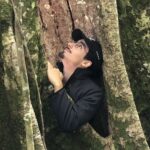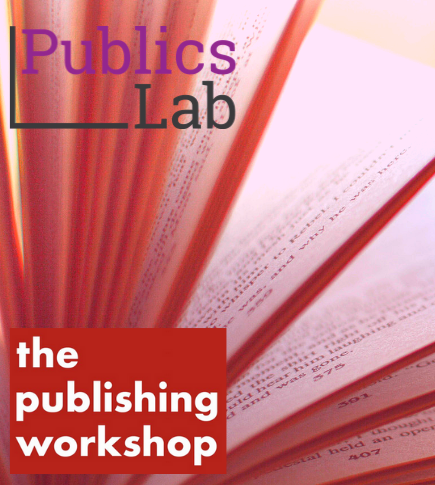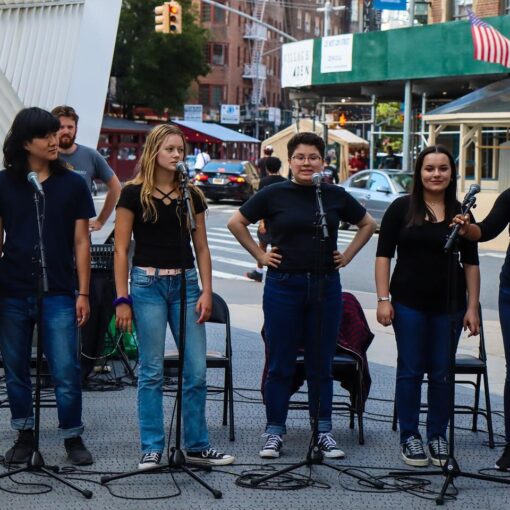
As philosophers, we are not used to looking past books and articles when we do our research. Such narrowness in our sources doesn’t serve us well. This is especially true when it comes to topics like environmentalism or gender, where academic sources often capture too little of what is conceptually interesting out there in the world.
Thanks to a PublicsLab Research Fellowship received in summer 2021, I experimented on how to do things differently by doing collaborative research. I’ll share with you my reflections on what happens when we create online spaces that serve both as research sites and as contributions to public scholarship. But first, a bit about my research.
One of the key questions driving my dissertation is: How are struggles against environmental injustices and destructive projects of natural resource extraction connected to feminism, anti-racism, and queer liberation? I ask myself this question because Latin American environmental movements are coalescing around the idea that, to defend their territories from the forces of dispossession and extractivism, it is necessary to center racism, sexism, and other forms of oppression that surreptitiously justify said dispossession. These latter issues, which are typically conceived as “social” rather than “environmental,” and as tangential to each other, are not at all disconnected, as I have learned.
I was especially curious about how the discourse on “the defense of territory” developed by Latin America environmental movements today might represent such an improvement. But, since the terrain is so vast, I could not have tackled this issue alone. Instead, I gathered a team of six Latin American activists and academics with whom I had collaborated before and created a “summer laboratory” that I was able to fund through the grant.
We had three goals: 1) to offer an online webinar on the defense of territory by the month of August; 2) to create an archive based on our research for the webinar; and 3) to meet weekly to discuss the ideas we found through our work on the first two goals. Each of these experiences turned out to be a rich source of information for my dissertation.
Weekly meetings and transformative dialogue
Had I had a little more ethnographic confidence, I would have made our weekly meetings an official fieldsite for my dissertation. I of course expected us to have good discussions since the team was diverse. The group included a trans and disabled activist from Bogotá, an indigenous campesino science teacher from Cauca, an anthropologist of Amazonian indigenous peoples in Venezuela, two queer educators from an extractivist region in Venezuela (me being one of them), and two Mexican feminists who had each researched and collaborated with indigenous movements. Still, I was surprised by the richness of our conversations.
For example, whereas most of us thought of attachment to territory as fundamentally a good thing (because we agree with the politics of most Latin American movements in defense of territory), our Bogotá activist drove home the point that “defense of territory” claims can sometimes generate unjust exclusions or fall short of our aspirations as a tool for solidarity. Someone else wondered about the role of different kinds of knowledge (scientific, popular, ancestral) in adequate caretaking of a territory. Even deciding what territory means became a topic for long discussions. Throughout this journey, we discovered beautiful new concepts being developed throughout Latin America, such as Guatemalan indigenous feminists’ territorio cuerpo-tierra (territory body-land) and Mapuche women’s terricidio (terracide).
Of all the activities I did this summer, these meetings were the most generative as a philosopher. At the same time, having the clear goal of offering an online webinar gave us focus. We were forced to organize and prioritize content, and this was conceptually illuminating. We also had to share the webinar space, so we nurtured each other’s understanding of territory and its defense. Someone even picked up the language of “defense of territory” and applied it to his thinking for the first time. What’s more, in designing the webinar we created a list of questions that I now want to answer in my dissertation.
Any linguistic anthropologist would have had a field day analyzing the evolving dynamics of our weekly meetings. I am not planning on doing that work myself, but I think that the model of intellectual exchange that I share here could be researched ethnographically in interesting ways.
Offering a public online webinar
Most academic research does not reach the public in accessible ways. Talks and conferences tend to be designed with an audience of academics in mind. Our webinar, Rutas diversas hacia el pensamiento territorial: Un taller interactivo para forjar solidaridad en el cuidado de lxs cuerpxs-territorios, las disidencias, y la vida (Diverse Routes to Territorial Thinking: An Interactive Workshop to Build Solidarity and Caretaking of Body-Territories, Sex-Gender-Body Dissidences, and Life) was based on a popular education methodology that several of us in the team have collaborated on for years. Take a look at our initial efforts to make our pedagogy public.
Each of us shared the invitation with networks that could be interested in the webinar. These included disability activists, political ecologists, sex educators, feminists, rural organizations, and more. We had well over 100 people register and, in the end, a wonderfully diverse audience. As a promotion strategy, we asked Jóvenes Sin Tabú, a Colombian sex education collective, to co-sponsor the webinar. I am now collaborating with them on a youth empowerment camp that will take place in Cauca, Colombia, in August 2022.
We got to hear from people all over Latin America. Many in the audience were only hearing about the defense of territory for the first time—they had signed up for the webinar based on other political commitments (feminism or farming, for example). We all left with new friendships and an enriched sense of the political solidarities that can be forged between environmental movements and other social movements. Someone even found herself a new therapist through the webinar.
As a researcher, I gained much from the webinar. I developed bonds with participants and invited speakers. Some of them I plan to interview or collaborate with in the future. And, as an example of tailored research that can still be public-oriented: by co-creating the questions for our panel session with six invited speakers, I got answers to questions that bear directly on my research and were equally valuable to the audience.
I am grateful for the opportunity to have carried out my research in a way that feels more ethical than business as usual. To make public outreach a central goal of the research process rather than an afterthought, to methodically include collaborators outside of academia, and to compensate them for their work, these are all steps toward a different academia. For many of us, research appears individualistic and exploitative of our non-academic collaborators. With the right support, it doesn’t have to be.
 Pedro Monque is a Ph.D. candidate in Philosophy at the CUNY Graduate Center. His dissertation explains the contributions of Latin American political ecology to broader environmental thought. He makes use of ethnographic methodologies and engages in environmental activism with the Venezuelan Political Ecology Observatory. You can read some of his work on Metaphilosophy (2021) and Hypatia (2021).
Pedro Monque is a Ph.D. candidate in Philosophy at the CUNY Graduate Center. His dissertation explains the contributions of Latin American political ecology to broader environmental thought. He makes use of ethnographic methodologies and engages in environmental activism with the Venezuelan Political Ecology Observatory. You can read some of his work on Metaphilosophy (2021) and Hypatia (2021).







